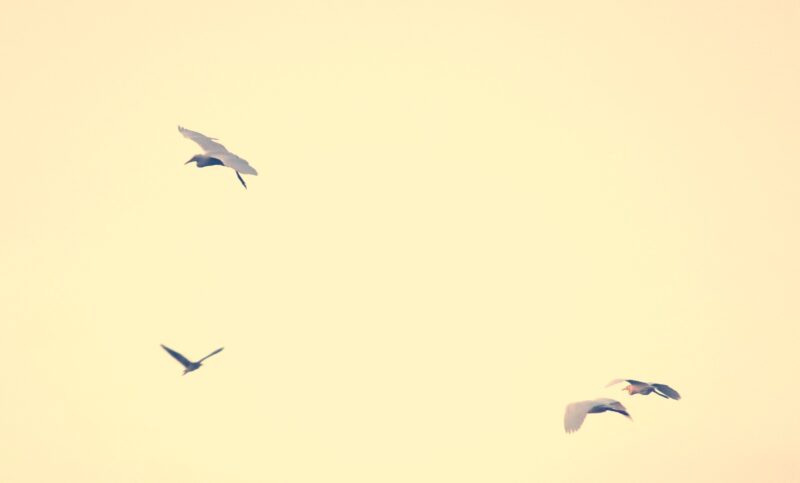“Go, said the bird, for the leaves were full of children,
Hidden excitedly, containing laughter.Go, go, go, said the bird: human kind
– T.S. Eliot, East Coker
Cannot bear very much reality.”
On a cold but clear 17th of December, 1903, a plane took off over a sandy beach in North Carolina. The flight lasted twelve seconds, went only six meters up, and covered a total distance of thirty-seven. It carried only one person: Orville Wright, thirty-two. He, his brother, and that flight altered history forever.
The Wright Flyer was the first successful heavier-than-air powered aircraft. In it, Orville became the world’s first aviator. He flew. He flew! On six meters of air, for twelve seconds! The stuff of dreams, of stories. Once upon a time, a legend,
Bellerophon the Valiant rode across the sky on a winged horse. Icarus soared through the air, his arms covered with feathers. King Kaj Kaoos of Persia attached four eagles to his throne. Alexander the Great had a basket and Griffins.
The rest of us, however, nonroyal or mythical, could only lay down for millennia and look at the sky. In our dreams, we had wings, magic carpets and brooms, pixie dust, ruby slippers, dragons and unicorns…
We fly on stories, poems, maps, postcards, and paintings. Moonlight sonatas, Viennese waltzes, swan lakes. We fly on promises of December snow, June berries. Mostly, we fly on that “thing with feathers” we call hope.
On an armchair in a drizzly, dreary, dusky November, watching migrating birds take to the sky before winter. Soar, lift! Defy gravity and other laws that pin us down. We close our eyes and thrust upwards on their wings to unimagined heights. Fly all the way to Argentina,then we awake, neck sore, legs numb, in the chair and dark. And for some, that is enough.
For some, weekends are enough. The view from a window seat. A reality that pays the bills and the monthly mortgage. Grounded in the safety of the same Monday commute. After all, Icarus crashed, Bellerophon fell from his horse, and a gust of wind toppled the Wright Flyer over.
Then there are the others, the fools who dream, who misread the stories; Icarus fell, but first saw the sun. Bellerophon, Mount Olympus. And the Wright brothers, that day, pioneered aviation.
Those fools who built kites; studied birds; blew hot air in balloons; drove gliders; experimented with wings, tails, and propulsion systems. Those who ran across fields and flapped their arms, jumped on their beds as children, and remained children.
“Go, said the bird,”
And they went. To the edge of earth, edge of sky, to space, the moon and beyond, on wings of steel and jet-powered engines, rockets, the shoulders of giants. The view of Earth, that Pale Blue Dot that made a planet dream, began at six meters, twelve seconds of sand and sea.
To dream is not a way to bear or escape reality. It is to question, test, contest, challenge it and ourselves: “How high can we go? How free can we get” if we try? How far does the sky go? “Go, said the bird,” find out.
